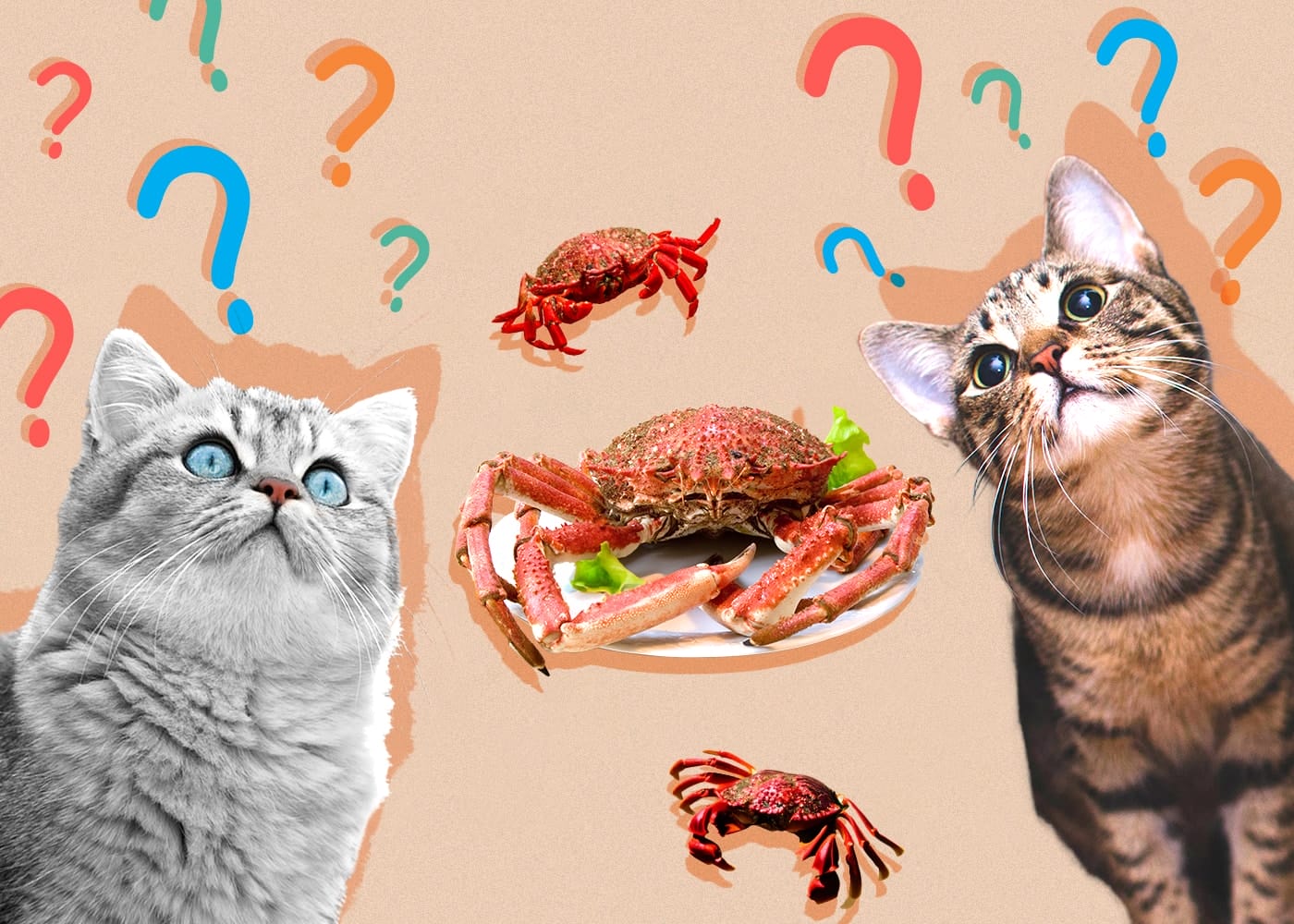Can cats consume crab? This article will look at the potential effects of crab on feline health and well-being.
Crab, a delectable seafood delicacy enjoyed by many people, has a distinct blend of flavors and textures. Crab, which is high in protein and essential nutrients, has found a place on the menus of people all over the world. As we savor its flavor and nutritional benefits, we can't help but wonder:
Is it safe for cats to eat crab?
Crab may be appealing to cats due to its smell, texture, and distinct flavor. While cats can eat cooked crab meat in small amounts, it should not be their primary source of nutrition. Cats are obligate carnivores, and animal-based proteins that provide essential amino acids and nutrients are the best way to meet their nutritional needs.
Can Cats Consume Crab? A small piece of crab as a treat for your cat is generally safe, as long as it is fully cooked and free of any seasonings, additives, or sauces that could be harmful to cats. It's important to note that crab should never make up a large part of your cat's diet.
Is Crab Toxic To Cats?
Can Cats Consume Crab? Cats are not poisoned by crabs. Certain precautions, however, should be taken to ensure your cat's safety. The crab's outer shell can be a choking hazard, and the seasoning or preparation methods used in human dishes may contain toxic ingredients to cats, such as garlic and onions. Furthermore, crabs caught in contaminated waters may carry harmful parasites or toxins.
Crab Benefits for Cats
Can Cats Consume Crab? Crab is high in protein, vitamins, and minerals, all of which can be beneficial to cats. Protein is required for muscle development, and minerals such as zinc and selenium promote overall health. Crab also contains omega-3 fatty acids, which are good for maintaining healthy skin and a shiny coat.
Can Cats Eat a Lot of Crab?
Can Cats Consume Crab? While small amounts of cooked crab meat can be given to cats as a treat on occasion, the amount should be kept to a minimum. The treat should only make up a small portion of your cat's total diet, with the majority of their nutrition coming from a balanced and nutritionally complete cat food.
Supplements and Alternatives
Can Cats Consume Crab? Consider the following alternatives when looking for safe and nutritious treats for your cat:
Cooked salmon is high in omega-3 fatty acids, which promotes a healthy coat and skin.
Canned Tuna: Provides protein and essential nutrients for your cat's overall health.
Shrimp (cooked and peeled): A low-fat protein source that your cat may enjoy.
Whitefish (well-cooked): Provides lean protein and is easy to digest for your cat.
Cooked and shell-free crab meat contains protein and minerals that can benefit your cat's health.
Can Cats Consume Crab? Consider the following three cat food brands, which are known for providing balanced nutrition tailored to feline needs:
Royal Canin: Provides specialized formulas to address specific cat health concerns.
Hill's Science Diet: Offers a variety of formulas tailored to various life stages and dietary preferences.
Wellness: Provides natural ingredients and a variety of flavors to please your cat's palate while meeting nutritional needs.

